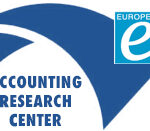I have just published, in ‘Accounting in Europe’ a commentary (Opinion) on who ‘owns’ the university accounting curriculum? I also reflect on why that ‘ownership’ matters.
This is the link (early online and free access):
https://www.tandfonline.com/doi/full/10.1080/17449480.2023.2206522
The questions raised in the commentary are: who determines, who owns, the accounting curriculum in universities, and does it matter who does?
The first question has a clear answer. But the answer is not what you would expect it to be. It is not the accounting professoriate that ‘owns’ the accounting curriculum. Professional accountants and auditor organisations, the accounting profession, as well as accounting and auditing regulators and oversight bodies do.
The commentary is confessional. I have been an accounting department chair at two Dutch universities since the 1990s. I never did much to stem the curriculum demands coming from the Dutch, European, and worldwide accounting profession, from regulators and oversight bodies.
Recently though I have come to realise (an answer to the second question) that ‘who owns the accounting curriculum’ negatively affects in important ways the quality of professional accounting and auditing, its regulation and oversight. I now realise my indifference was wrong. This is the background for this commentary.
Indifference here is wrong in principle. If the accounting and auditing professions want their members to be university trained, they will have to accept studying a curriculum determined by accounting academics: the accounting professoriate.
But my indifference was also wrong because of its consequences. The domination of the accounting profession and regulators of the university accounting curriculum prevents the accountants and auditors from reaching their true professional quality potential. I give several worrying examples.
University-trained accountants and auditors are doing fine as professionals in their various roles. But they could do better.
I argue in the commentary that this, doing better, will happen when the profession’s, regulators and oversight bodies domination of the university accounting curriculum disappears. That is: when the accounting professoriate will take full charge of curriculum design. The commentary is a call for that to happen.

















